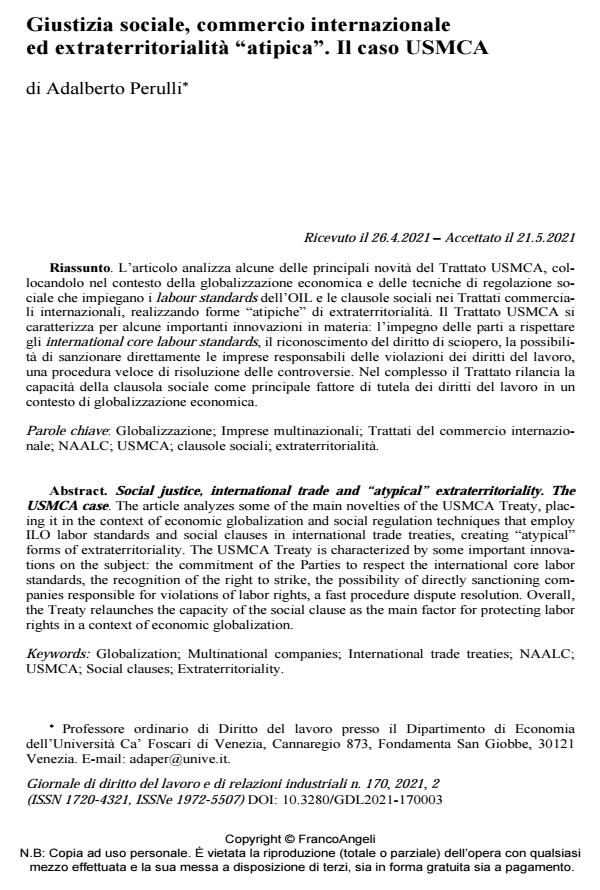Social justice, international trade and "atypical" extraterritoriality. The USMCA case.
Journal title GIORNALE DI DIRITTO DEL LAVORO E DI RELAZIONI INDUSTRIALI
Author/s Adalberto Perulli
Publishing Year 2021 Issue 2021/170
Language Italian Pages 20 P. 215-234 File size 266 KB
DOI 10.3280/GDL2021-170003
DOI is like a bar code for intellectual property: to have more infomation
click here
Below, you can see the article first page
If you want to buy this article in PDF format, you can do it, following the instructions to buy download credits

FrancoAngeli is member of Publishers International Linking Association, Inc (PILA), a not-for-profit association which run the CrossRef service enabling links to and from online scholarly content.
The article analyzes some of the main novelties of the USMCA Treaty, placing it in the context of economic globalization and social regulation techniques that employ ILO labor standards and social clauses in international trade treaties, creating "atypical" forms of extraterritoriality. The USMCA Treaty is characterized by some important innovations on the subject: the commitment of the Parties to respect the international core labor standards, the recognition of the right to strike, the possibility of directly sanctioning companies responsible for violations of labor rights, a fast procedure dispute resolution. Overall, the Treaty relaunches the capacity of the social clause as the main factor for protecting labor rights in a context of economic globalization.
Keywords: Globalization; Multinational companies; International trade treaties; NAALC; USMCA; Social clauses; Extraterritoriality
- Green Transition and the Quality of Work Vania Brino, pp.33 (ISBN:978-3-031-68199-8)
- Responsabilità sociale d'impresa 2.0 e sostenibilità digitale Lara Lazzeroni, (ISBN:979-12-215-0262-6)
Adalberto Perulli, Giustizia sociale, commercio internazionale ed extraterritorialità "atipica". Il caso USMCA in "GIORNALE DI DIRITTO DEL LAVORO E DI RELAZIONI INDUSTRIALI " 170/2021, pp 215-234, DOI: 10.3280/GDL2021-170003